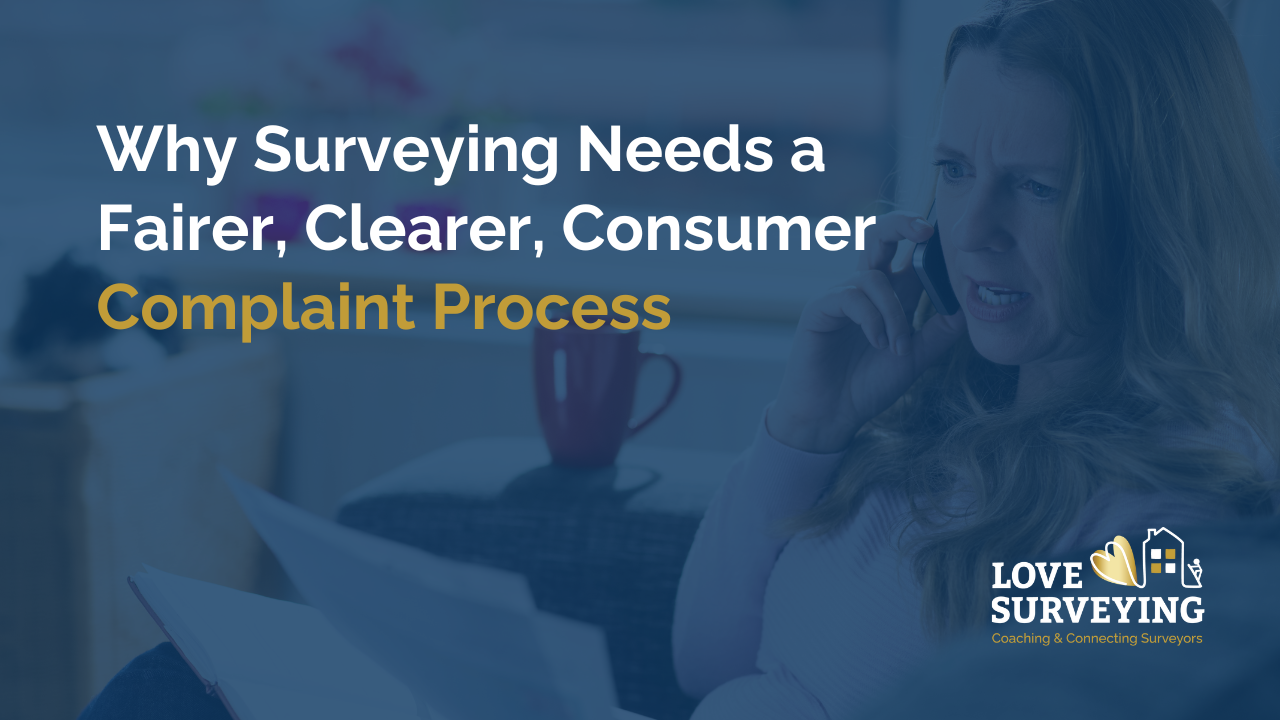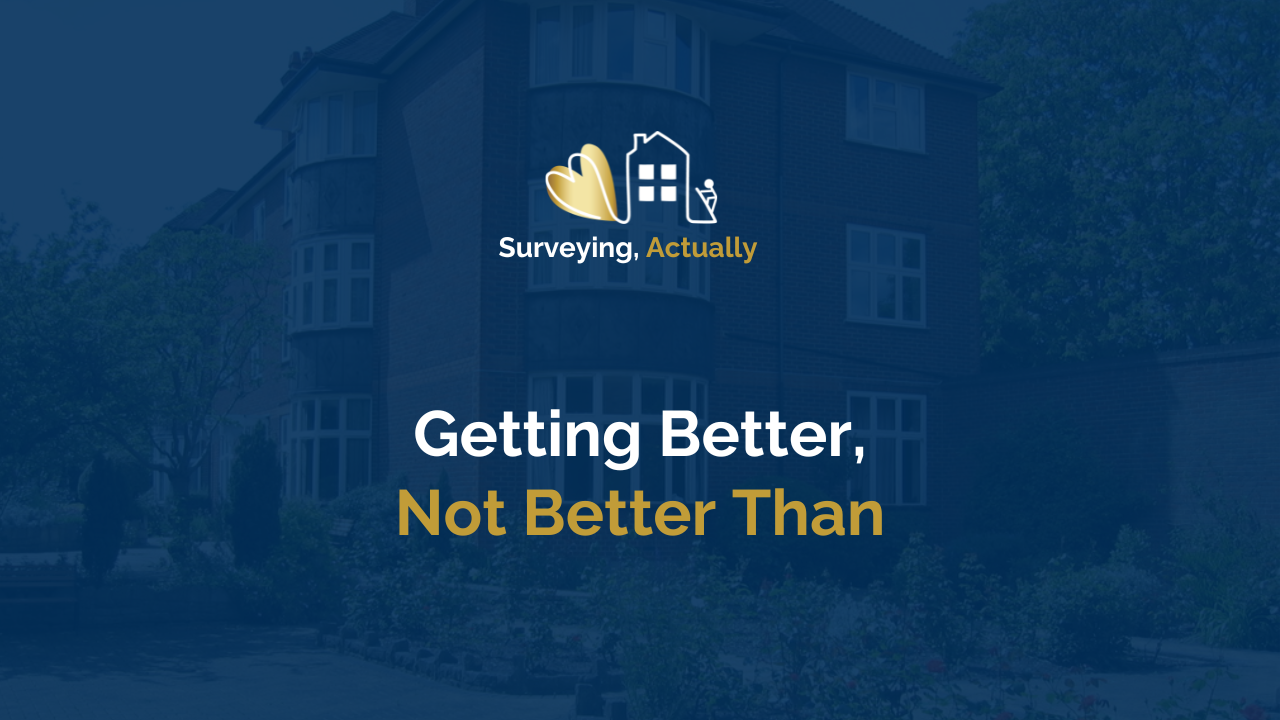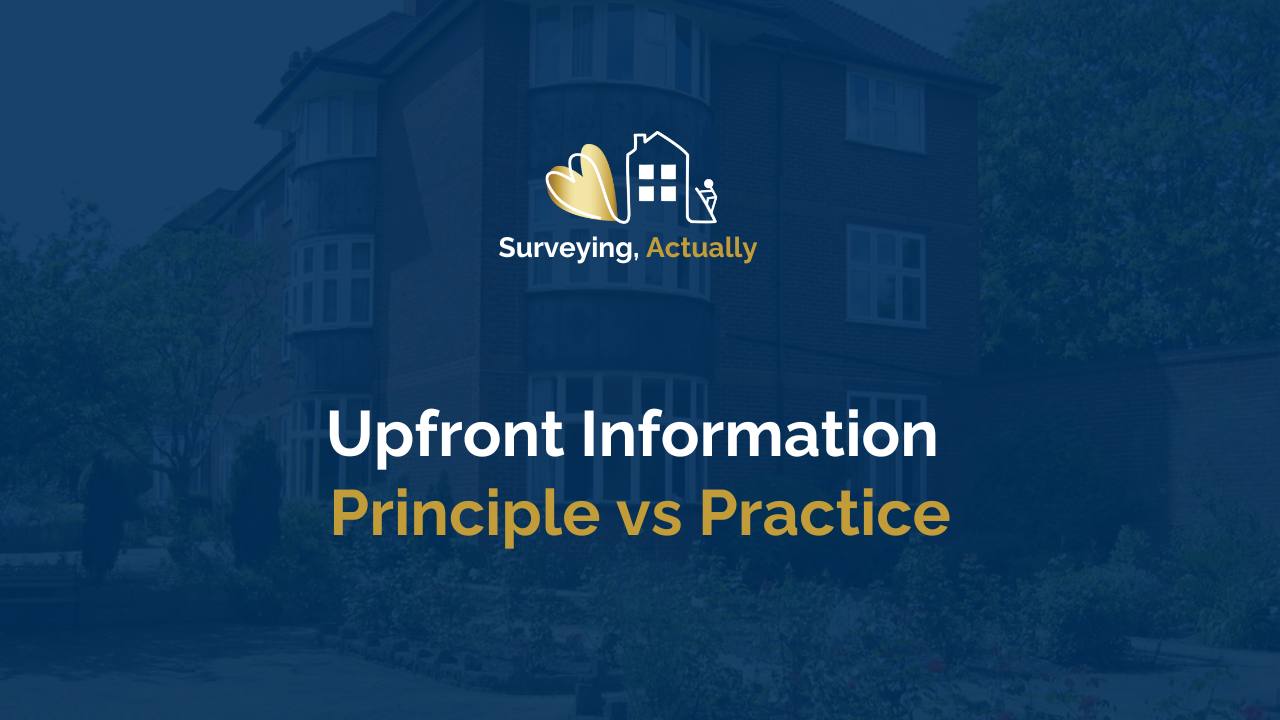Why Surveying Needs a Fairer, Clearer Consumer Complaint Process
Feb 03, 2025
As a surveyor, consumer advocate, and someone who supports professionals navigating complaints, I’ve seen both sides of the story.
I know how emotionally draining a complaint can be - for the person raising it and for the surveyor on the receiving end. But the current systems we rely on to resolve these issues aren’t working as they should, and that’s something we need to talk about.
The Myth That Consumers Have the Upper Hand
One concern I often hear from surveyors is that consumers already have an advantage. They can complain and escalate to an alternative dispute resolution (ADR) provider like CEDR; some feel the system leans in their favour.
But in reality, this is what I see:
- Consumers often don’t know where to start. Complaints procedures can be hard to find or written in unclear language.
- Many don’t understand the difference between a firm’s internal process, CEDR, and RICS’s role as a regulator.
- Responses are sometimes defensive or vague, which increases frustration and confusion.
- If the issue involves losses over £25,000, consumers often have no realistic or affordable route to redress.
- When they turn to RICS, they often think it’s a consumer protection body. But it has limited powers, and complaints can take years with no visible outcome.
- Many people give up - emotionally exhausted, financially out of pocket, and without resolution.
So, while it may look like consumers hold power, the reality is they are often disempowered and unsupported.
Why This Matters for Surveyors
When complaints aren’t handled properly, surveyors suffer, too.
I’ve supported professionals who have experienced:
- Mental health challenges triggered by delays and uncertainty.
- Long periods of no communication or updates from regulators.
- Unfounded or vexatious complaints are left to linger without resolution.
- Neurodiverse members navigate processes that feel inaccessible or overwhelming.
A fair complaints process must work for both sides - consumers and surveyors.
What Needs to Change
These are some of the changes I’ve called for based on what I’ve seen:
- A clear, fair, and transparent complaints process across firms, ADR providers, and RICS.
- Guidance in plain English, with realistic timelines.
- A public digital register showing surveyor status, insurance, and disciplinary history.
- A system that encourages early resolution where appropriate.
- Better support for both consumers and surveyors navigating complex issues.
- Transparency about ADR decisions, enforcement, and next steps.
This isn’t about blame - it’s about building a system that people can trust. While there might be specific reasons, legal or otherwise, for the way we do things, that doesn't mean we can't bring about change for the better.
A System That Works for Everyone
Most surveyors want to do a good job. They care deeply about their work and their clients. But the current system doesn’t help either side feel heard or supported when things go wrong.
We need a complaints and regulation process built on fairness, clarity, and trust. That means more than ticking boxes - it means creating something that reflects the values of our profession.
I believe in a future where surveyors can thrive and consumers feel safe and supported. And I believe it starts with listening, learning, and leading the change we need.
Enjoy this article? You might also like to read Housing Disrepair and Expert Witness Standards: Why RICS must act now.
Find this content useful? I'd love to hear your suggestions and recommendations. If you found this article helpful, please share it and show your support by leaving me a Google review, or you can Buy Me a Coffee. As a small business, it makes all the difference.





